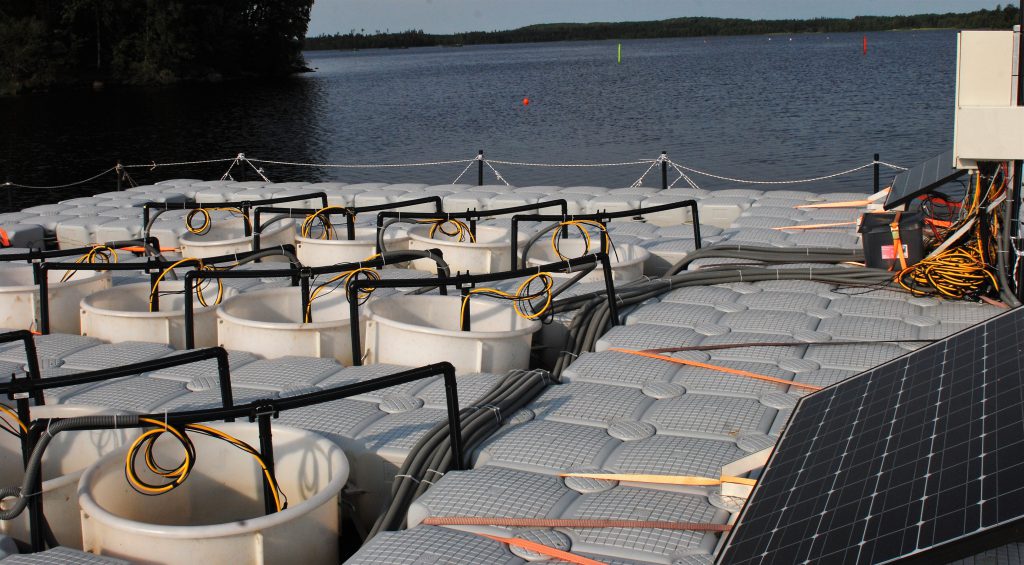Increased Browning Alters Zooplankton Composition
Increased Browning Alters Zooplankton Composition: A Mesocosm Study in Lake Bolmen

Photo: Juha Rankinen
Author
Gustavsson, Oscar
Halmstad University, School of Business, Engineering and Science.
2019 (English)
Thesis on first level (bachelor degree) 15 credits
Published: 2019-09-18
Abstract
In the recent decades many freshwater systems in the northern hemisphere have been faced withan increase in water colour, a phenomenon called ‘’browning’’ or ‘’brownification’’. Planktonic communities have been observed to be affected by this ’’new’’ phenomenon. An increase in water colour can alter the light climate of aquatic systems and thus aquatic primary production. Browning is predicted to increase along with climate change, and as planktonic communities have a key role in freshwater systems it has become crucial to study its impact. A mesocosm experiment was carried out in the summer of 2018 in lake Bolmen to study the effects of predicted future browning (as in 50 and 100 years from present day conditions). Analysis showed that browning had a positive effect on the abundance of Daphnia spp. Furthermore, discriminant analysis revealed that expected browning in 100 years might cause significant changes in taxonomic composition of zooplankton.
Increased Browning Alters Zooplankton Composition: A Mesocosm Study in Lake Bolmen